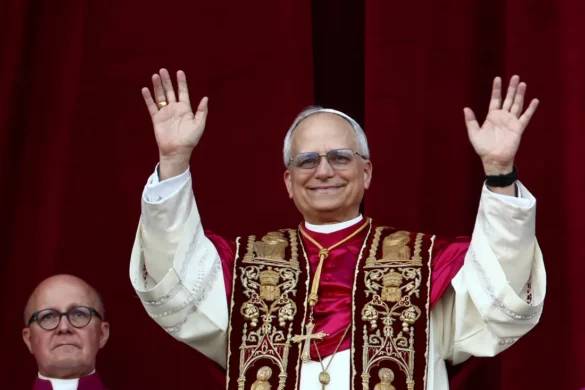Chancellor Angela Merkel “read with interest” U.S. President-elect Donald Trump’s interview with the Bild newspaper in which he called NATO “obsolete”, her spokesman said, adding Berlin still aimed for close cooperation with Washington.
Government spokesman Steffen Seibert declined to comment on specific remarks in the interview, saying many of Trump’s positions were known.
“We will wait for the inauguration of President Trump and then will work closely with the new administration,” Seibert told a regular government news conference.
Foreign Ministry spokesman Martin Schaefer said it was difficult to get a clear view of Trump’s policies given contradictions in his statements in interviews and on Twitter.
“We will see what policy really is after the inauguration on Friday,” he told reporters.
Trump told The Times of London and Germany’s Bild newspaper in an interview that he viewed NATO as obsolete because it had not defended against terror attacks, but said the military alliance was still very important to him.
His comments appeared to contradict views expressed by his nominees for secretary of state and defense secretary during confirmation hearings last week, Germany’s transatlantic coordinator, Juergen Hardt, told Reuters.
Hardt said he did not expect the U.S. Congress to allow Washington to give up its key role in NATO.
He said key U.S. lawmakers, including Senate Armed Services Committee Chairman John McCain, had told him several weeks ago they expected Washington to remain a reliable partner in the 28-nation bloc, and he did not expect Trump to reverse the deployment of 4,000 U.S. troops to Poland.
“The U.S. Senate and House will not allow the abandonment of the U.S. role in NATO,” he said, although he said it was clear Europe needed to do more to secure its own defences.
Norbert Roettgen, head of Germany’s foreign affairs committee, said Germany should fight for “the restoration or preservation of Western unity” as the core of European security.
“Europe is not able to replace the security role of the United States so there is a lot at stake – the very foundations of liberal order internationally and European security. And for that we should fight because it is our very existential interest,” Roettgen told Reuters.
In the interview, Trump repeated his criticism of those NATO members who he said were not paying their fair share, noting only five NATO members were spending the agreed target of 2 percent of gross domestic product on defence.
Germany remains committed to gradually increasing its military spending, Defence Ministry spokesman Jens Flosdorff told the news conference. Merkel in November said she could not promise the NATO target would be met “in the near future.”
Hardt said more spending was clearly needed, but Germany would also continue to press for greater European cooperation.




